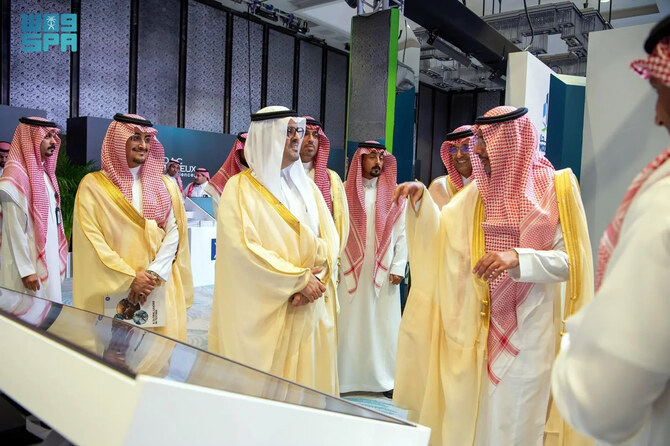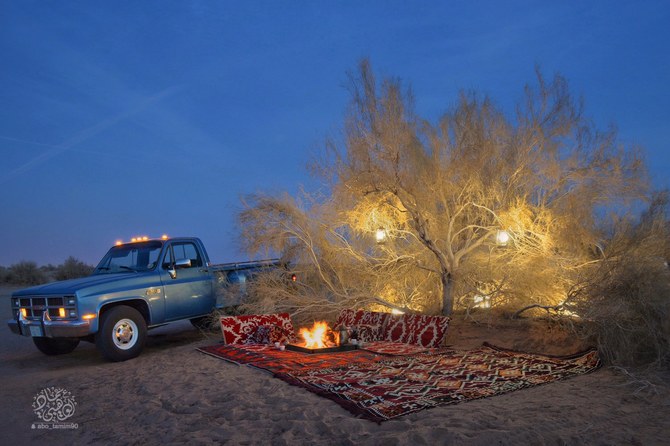Saudi Arabia has officially launched the Jeddah Food Cluster, a major project aimed at transforming the city into a global business hub with an investment target of SR20 billion ($5.3 billion).
Spanning 11 million sq. meters, the cluster is now recognized by Guinness World Records as the largest food park in the world by area. The development is expected to create over 43,000 jobs, driving both local and national economic growth.
The opening ceremony, held on Nov. 24, was led by Prince Saud bin Mishal, deputy governor of Makkah, under the patronage of Prince Khaled Al-Faisal, governor of the Makkah region. It was attended by high-ranking officials, including Saudi Minister of Industry and Mineral Resources Bandar Alkhorayef.
The inauguration of the cluster aligns with Saudi Arabia’s Vision 2030, which seeks to strengthen food security, achieve self-sufficiency, develop food value chains, and establish the Kingdom as a regional hub for attracting both domestic and international investment in the food sector.
Located in Jeddah’s Second and Third Industrial Cities, the Jeddah Food Cluster is part of a larger industrial network in the Makkah region, which also includes industrial cities in Makkah and Taif. This region, which spans more than 50 million sq. meters, hosts over 2,000 industrial facilities specializing in sectors such as food production, pharmaceuticals, metals, and chemicals. The new food cluster is designed to enhance industrial productivity through cutting-edge infrastructure and strategic investments in key enablers.
Currently, the cluster houses 124 operational factories with investments totaling SR4.4 billion. These factories are estimated to produce around 4 million tonnes of goods annually across 10 industrial sectors and provide jobs for over 7,000 workers.
It also features 76 ready-to-use factories that comply with Saudi Food and Drug Authority standards. Additionally, the cluster has built a central laboratory to improve food quality and safety, as well as over 134,000 sq. meters of shared cold and dry storage facilities. By concentrating suppliers in one location, the cluster aims to create a sustainable, efficient supply chain.
The economic impact of the Jeddah Food Cluster is expected to be substantial, with national exports projected to increase by SR8 billion. The development is also anticipated to create thousands of job opportunities, particularly in the industrial and logistics sectors, and contribute approximately SR7 billion to Saudi Arabia’s GDP over the next decade. This aligns with the broader objectives of Saudi Arabia’s National Industrial Strategy and the National Industrial Development and Logistics Program, which aim to foster economic diversification and sustainable growth.
At the ceremony, MODON, the Saudi Authority for Industrial Cities and Technology Zones, announced that the Jeddah Food Cluster had achieved a significant milestone, receiving recognition from a global organization. Prince Saud also toured an exhibition showcasing the involvement of private companies and government entities in the food supply chain. This was followed by the presentation of the global recognition certificate.
Several memorandums of understanding and agreements were signed during the event. These partnerships, which include collaborations with Umm Al-Qura University, the National Academy for Industry, and Halal Products Development Co., focus on developing specialized training programs, improving food safety, and promoting quality control within the food industry.
Alkhorayef, in his speech, emphasized that the Jeddah Food Cluster represents more than just an industrial project—it is a key element in the Kingdom’s broader strategy for sustainable economic growth.
“Through this cluster, we aim to leverage the ministry’s capabilities to serve Jeddah, the Kingdom’s economic hub, and a prime investment destination,” he said.
He also highlighted the importance of connecting manufacturers, suppliers, and service providers to boost innovation and competitiveness, as well as to create new job opportunities, particularly for Saudi youth.
On the sidelines of the event, a panel discussion titled “The Future of Global Food Supply Chain Resilience for Innovation and Sustainability” was held, featuring industry leaders such as Abdullah bin Nasser Al-Badr, CEO of Almarai, Betty Ka, director of supply chain and delivery at the UN World Food Program, and Fabio Maia de Oliveira, general investment director at JBS Saudi Arabia. The panel explored strategies for building resilient and sustainable global food supply chains.
The launch of the Jeddah Food Cluster marks a significant step in Saudi Arabia’s ongoing efforts to diversify its economy and strengthen its position as a global leader in the food industry.
source/content: arabnews.com (headline edited)
_____________

Saudi Minister of Industry and Mineral Resources Bandar Alkhorayef attends the ceremony to launch Jeddah Food Cluster. SPA
_________________
SAUDI ARABIA

